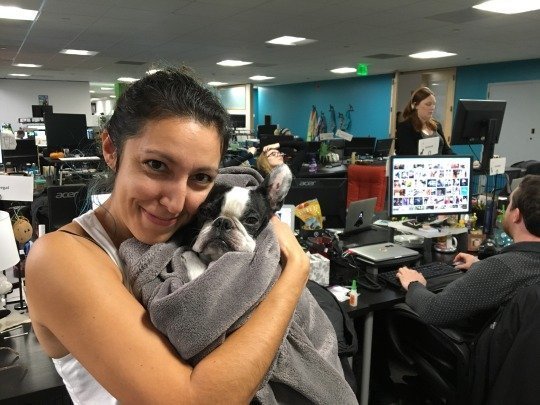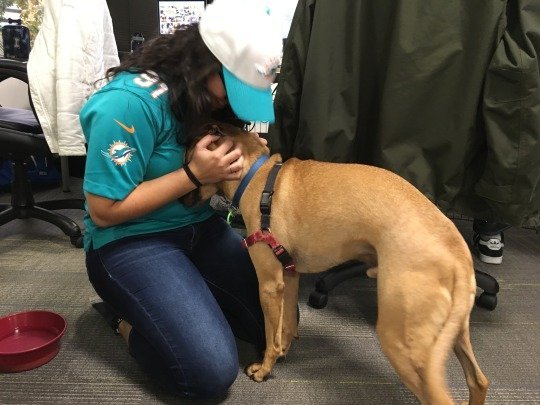
1. What were you doing before you became a Software Engineer?
I worked at UW as a program administrator – I’d worked in various higher education administration positions on and off since finishing undergrad at CU-Boulder. I moved to Seattle in 2012 for graduate school in geography and I heard about Ada through a colleague there. I waited until I finished my master’s and then applied to Ada. I’d been unhappy with my career trajectory and I was ready to take a leap to something different.
2. Where are you currently working and what do you do?
I’m a full-stack developer at Rover.com, a marketplace platform for pet sitters and owners. I work mostly in Python and Django on development work to improve the experience for sitters and owners, as well as internally for our operations team. The technology team is still relatively small, so there’s a lot exposure to other parts of the technology stack and infrastructure.
3. What’s your favorite part of your job?
Oooh, that’s tough. I love dogs so the dog perks are pretty nice, and the dog friendly mission of the company means I’m getting a puppy in a couple of weeks! Both my human and dog coworkers are great, and I’ve found everyone to be supportive when I have questions or I’m stuck on something tricky. The work itself is the most interesting work I’ve ever done at a job…maybe that’s not saying much since I once had a temp job opening mail all day! That being said, I sort of have a love/hate relationship with the challenging nature of coding. On the one hand, it is SO NICE to be able to use my brain at work. But it can also be frustrating and and occasionally exhausting. I still wouldn’t go back though – the challenges are what make it fun.
4. Describe a typical day in your role.
I usually get in between 9:00-9:30, sometimes a little earlier if I’m trying to leave early for a gym class. I’ll grab coffee and get caught up on emails and slack to see what’s been going on with the tech team. We have a quick standup at 9:45 and some days we have sprint planning or project planning meetings. I usually take lunch around noon and typically a few of us venture out somewhere nearby. Afternoons tend to be quieter with fewer meetings and allow for more uninterrupted coding time. We plan our sprints the week before, and generally have a prioritized backlog if we need to bring in more work. Sometimes I’ll work from home, and the process is about the same except I’ll have a cat as a co-worker, and the team is set up really nicely for working remotely.
5. Any advice you have for others looking to enter the tech industry as a programmer.
Try some programming if you haven’t before. I had zero idea what it was about until my friend talked about Code Academy and I played around with some online tutorials. Over the next couple of years, I dabbled more and more and my interest grew. Switching to tech was a big career shift, and it was important to me to have a sense of what I was getting into.
If you are looking into moving into tech (or really any big career transition!), do what you can to have a good support network – a program like Ada is stressful and having friends and my classmates to lean on and vent to was invaluable!
There are so many moments of self-doubt, but you’re not alone feeling that way – even those who have been in the industry longer express the same sentiments. I’ve found it heartening when more experienced programmers will say things like, “I have no idea how that works” or “What was I thinking when I wrote that?!” because it reminds me that you can’t know everything in tech. There is always something new, the latest framework or tool, and code you wrote last year might look incomprehensible to you today. You will never know EVERYTHING and getting comfortable with that has been necessary for me to stay sane.

